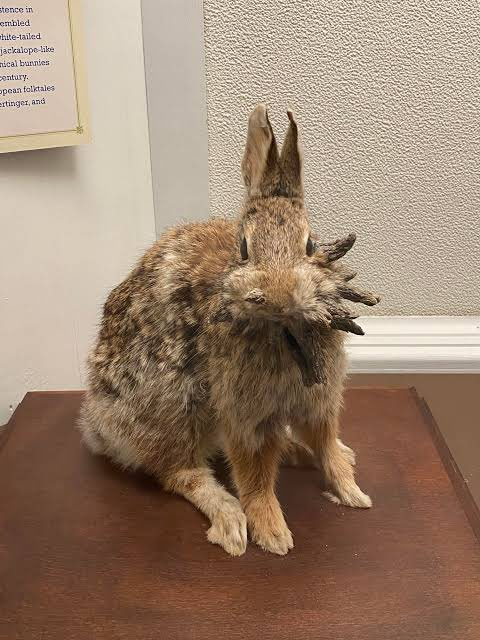‘Frankenstein’ Rabbits with Mouth Tentacles, Black Horns Invade Colorado; Experts Urge to Stay Away
Rabbits in parts of the US are looking scary like creatures from nightmares with black horns and mouth tentacles. A change in appearance among this cuddly and fuzzy animal is causing concern among residents in Fort Collins, Colorado. According to experts, a rapidly spreading bizarre virus is turning these rabbits into horned creatures.
Several residents in Fort Collins, Colorado, spotted these so-called “Frankenbunnies” in their neighborhood. According to local residents, these mutated rabbits were spotted with black-colored growths, resembling horns or tentacles, on their heads.
“It looks like it was black quills or black toothpicks sticking out all around his or her mouth. I thought he would die off during the winter, but he didn’t. He came back a second year, and it grew,” Fort Collins resident Susan Mansfield told 9NEWS.
X
Experts Urge Public to Stay Away
The strange-looking, not-so-cute bunnies have raised concern among the local residents. Colorado Parks and Wildlife officials have identified the cause for this change in appearance among cottontail rabbits. They revealed that it is caused by the cottontail papilloma virus (CRPV), also known as Shope papilloma virus. When a rabbit becomes infected with this virus, tumors grow on or nearby its head, resulting in a change in appearance.
“Rabbit papillomas are growths on the skin caused by the cottontail rabbit papillomavirus. The growths have no significant effects on wild rabbits unless they interfere with eating/drinking. Most infected cottontails can survive the viral infection, after which the growths will go away. For this reason, CPW does not recommend euthanizing rabbits with papillomas unless they are interfering with the rabbit’s ability to eat and drink”, Colorado Parks and Wildlife stated.

X
Though the virus poses no threat to humans or other species, Colorado Parks and Wildlife spokesperson Kara Van Hoose urged people to stay away from the infected rabbits. She said people and pets should not approach, catch, touch, or feed the infected rabbits.
“Like other papillomaviruses, this virus is specific to rabbits and does not cause disease in other species. There is a risk of transmission to domestic rabbits, especially if they are housed outdoors, where the bunnies may contact infected wild rabbits or biting insects. In domestic rabbits, the disease is more severe than in wild rabbits and should be treated by a veterinarian,” the official website for Colorado Parks and Wildlife shared.

